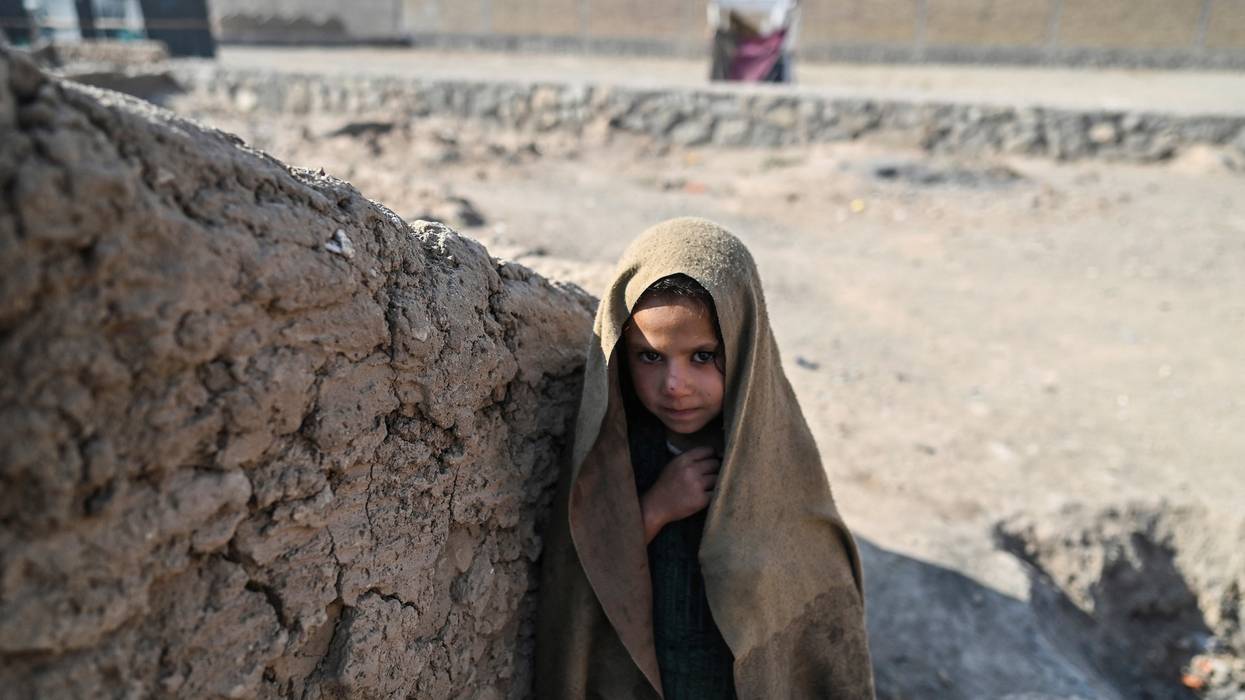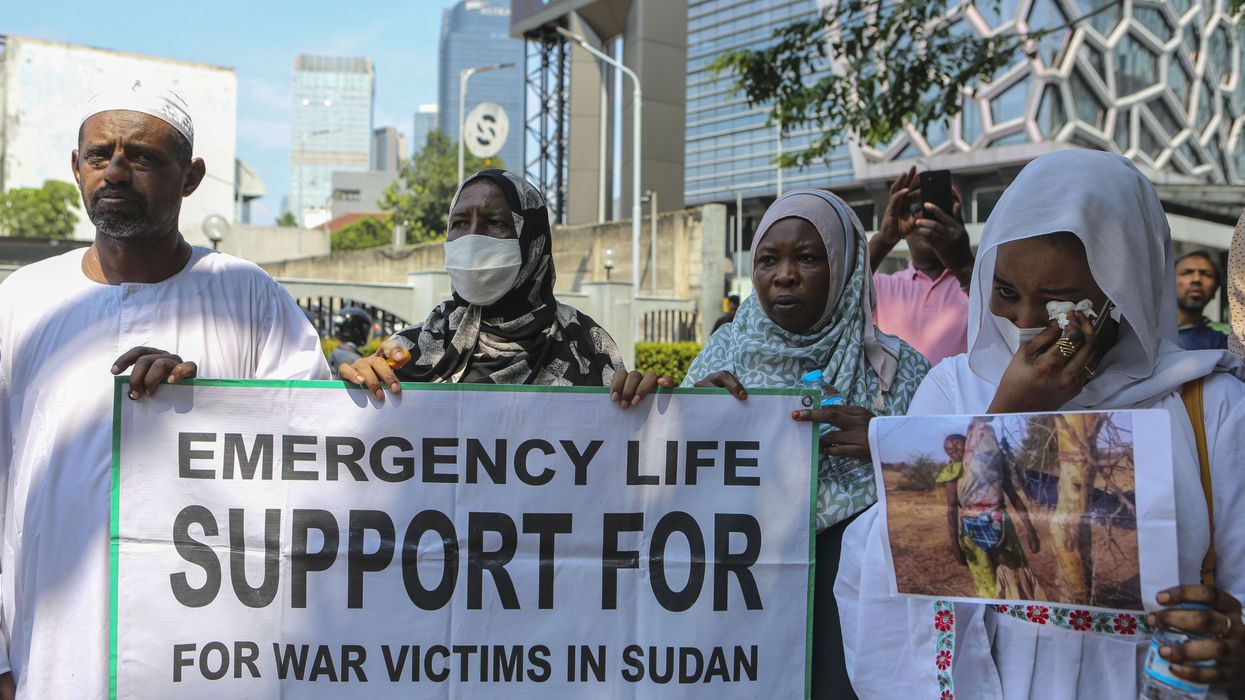
Mussolini Had His Blackshirts, Hitler Has the SS, and Trump Has ICE
The existence of this profoundly unaccountable, overtly fascist military apparatus poses a structural danger to our democracy. This is why "Abolish ICE" is an extremely moderate position.
On Tuesday ofthis week, The Economist and YouGov released a poll finding, for the first time, that more Americans want to abolish Immigration and Customs Enforcement (ICE) than don’t.
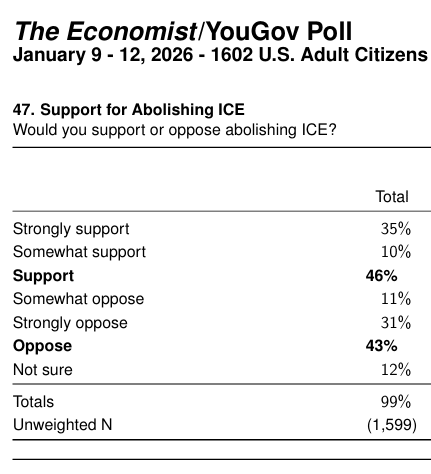
According to the poll, 46 percent of people support getting rid of ICE, compared to 43 percent who oppose its abolition. This represents a major shift in public opinion—this same polling outfit found only 27 percent support for abolishing ICE as recently as July. Today’s survey also found that most Americans believe ICE is making them less, not more safe, by a margin of 47 percent to 34 percent.
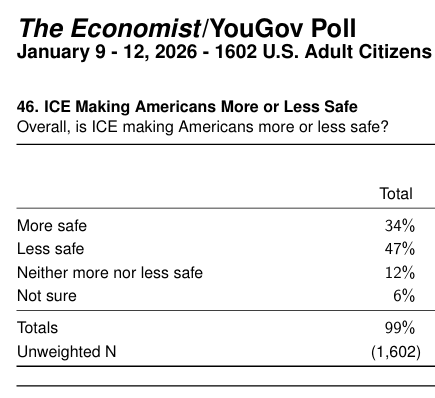
In perfect form, this morning the centrist advocacy group Third Way released a memo warning Democrats not to call for dismantling ICE, arguing that “politically, it is lethal.” Their evidence includes a focus group they conducted in October, which…is dumb. ICE’s execution of Renee Nicole Good has broken through—69 percent of Americans report having seen video of the shooting. This has clearly impacted public opinion in a way that makes information from months ago significantly irrelevant.
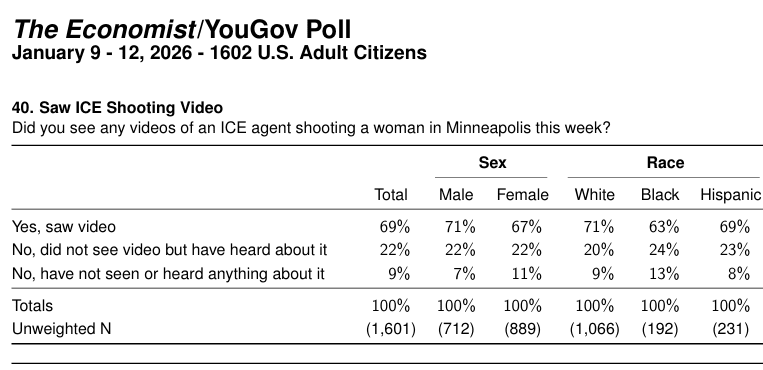
We cannot let the Third Ways of the world—the centrist establishment muckety mucks whose version of the Democratic Party already lost to Trump, twice—win this debate. It’s simply too important.
There are lots of reasons to dismantle ICE. There’s a functional argument: We do not need ICE to enforce immigration laws; the U.S. handled this just fine for 227 years prior to the creation of this specific agency. There’s a fiscal argument: ICE is now larger than every other federal law enforcement agency combined. It’s larger than the militaries of all but 15 countries in the world! It’s annual budget, $37.5 billion, could pay for the health insurance of every needy child in the country!
But the core reason for abolishing ICE is that it poses a structural threat to American democracy. This is an unaccountable agency, by design. ICE is not subject to the rules governing local or state police departments; there are no laws barring ICE agents from wearing masks, driving in unmarked cars, and operating in plainclothes. ICE was designed after 9/11 to support the FBI’s domestic terrorism efforts, with almost nothing in the way of transparency or guardrails. So what happens when domestic terrorism gets defined as expressing “opposition to law and immigration enforcement; extreme views in favor of mass migration and open borders; adherence to radical gender ideology, anti-Americanism, anti-capitalism, or anti-Christianity,” and “hostility towards traditional views on family, religion, and morality,” as Trump’s NSPM-7 directive and Attorney General Pam Bondi’s recent memo to the FBI do?
Well, what happens is everything that we are seeing from ICE today—a federal agency operating quite explicitly as Trump’s personal militia. Mussolini had his Blackshirts, Hitler had his SS, and Trump has ICE—an army of ideologically motivated MAGA loyalist chuds whose new members owe their employment not to the state (being largely unqualified for positions in legitimate law enforcement agencies) but rather to Trump’s personal patronage.
The existence of this profoundly unaccountable, overtly fascist military apparatus poses a structural danger to our democracy. Structural dangers like this can’t be reformed—they need to be dismantled. “We shouldn’t have a Gestapo in this country” isn’t a radical position. It’s actually the only non-radical position you can take on the question. That’s long been true morally. And today’s polling shows it’s true politically, as well. In every way, abolishing ICE is now the moderate position.
So email your Democratic elected officials, call their offices, speak up at their town halls. Tell our Democratic representatives and senators that they need to use every tool at their disposal—including, in the near term, the Congressional appropriations process—to stand up to this rogue militia. And help our Democratic leaders understand—if we are so lucky, come 2028, to get a second chance at resetting our democracy—that getting rid of Trump’s SS is nonnegotiable.
